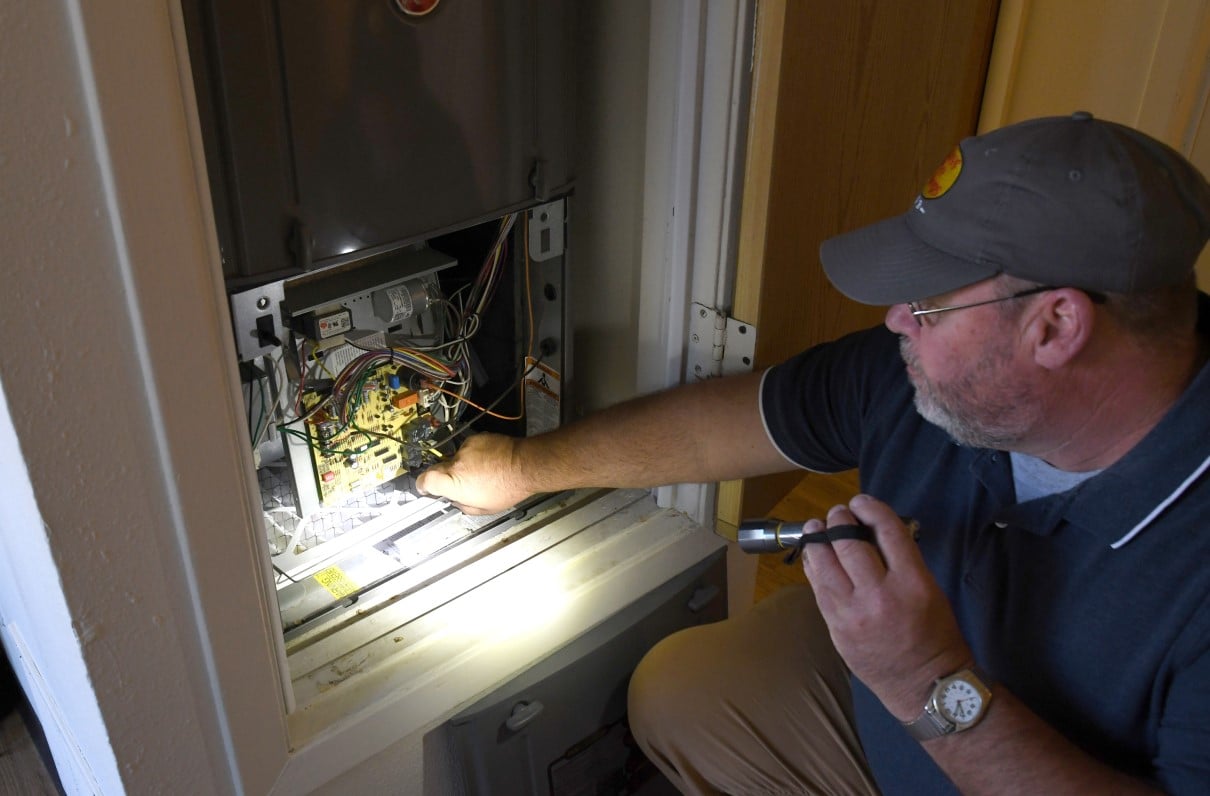Editor’s note: This article by Rebecca Kheel originally appeared on Military.com, a leading source of news for the military and veteran community.
The U.S. senators from Virginia are pressing the military to finish overdue reforms meant to improve conditions in privatized housing on military bases following a watchdog report that the changes have been slow to help military families facing health and safety issues.
In letters to the Pentagon, Air Force, Army and Navy, Sens. Mark Warner and Tim Kaine, both Democrats of Virginia, pushed for answers on how officials plan to respond to shortcomings identified in an April report from the Government Accountability Office on the military's oversight of its privatized housing.
"Our service members and their families have been forced to navigate housing conditions and processes as part of the privatized housing system that have been woefully unacceptable," the senators wrote in the letters, which were dated July 6 but publicly released Monday. "Military families deserve safe and healthy housing -- providing this standard and caring for these families more generally must remain among your highest concerns."
[RELATED: Senate Bill Supports MOAA’s Work to Restore Full Basic Allowance for Housing]
About 203,300 housing units across nearly 200 bases -- or about 99% of all family housing on domestic military bases -- are owned and operated by private companies.
After a series of Reuters reports in 2018 and several congressional hearings with military families uncovered widespread problems with mold, rodent infestations, dangerous wiring and shoddy repairs across the privatized housing, Congress used its 2020 annual defense policy bill to enact reforms aimed at holding the housing companies more accountable and giving military families more power as tenants.
But the April report from the GAO found those reforms are being implemented inconsistently. For example, while Congress mandated that the Defense Department provide residents the right to enter into formal dispute resolution processes with the housing companies, the Pentagon's guidance to residents "lacks detailed information, such as how and when they can file a formal dispute," and "military housing officials have not received adequate guidance or training for assisting residents," the GAO said.
[RELATED: Check Out the Big Changes for Military Moves in 2023]
Congress also required an 18-point tenant bill of rights, but companies have not agreed to fully implement the rights at three bases: Joint Base Elmendorf-Richardson, Alaska; Wright-Patterson Air Force Base, Ohio; and Joint Base McGuire-Dix-Lakehurst, New Jersey. And while the military services are inspecting homes prior to residents moving in as Congress mandated, the Pentagon "has not developed clear or consistent inspection standards and the military departments have not provided adequate inspector training," the report said.
In their letters, Warner and Kaine asked officials what steps they are taking to ensure the bill of rights is fully implemented, when they plan to develop consistent inspection guidance and why some requests by residents to initiate a formal dispute were rejected, among other questions.
The GAO report "highlights a litany of ways in which the function of some of these reforms differs across the services, and varies installation-to-installation," wrote Warner, the chairman of the Senate Intelligence Committee, and Kaine, a member of the Senate Armed Services Committee. "This echoes a concern that we have had -- which is that as DoD and each of the services worked to implement these reforms, many of these efforts have happened in a piecemeal or stove-piped manner, in some instances with an eye more towards compliance, rather than resident experience."
[RELATED: Help Strengthen MOAA’s Message: Sign Up for Our Legislative Action Center]
With military families still reporting disgusting living conditions, lawmakers are also hoping to use this year's defense policy bill to enact more reforms. Among them, both the House and Senate version of this year's National Defense Authorization Act, or NDAA, would create a Military Housing Readiness Council of representatives from the Pentagon, each of the military services, military spouses, military housing advocacy groups, appointees of members of Congress and outside experts in state and federal housing standards.
The council would, among other duties, monitor compliance with the tenant bill of rights and a congressionally mandated complaint database. The House is scheduled to vote on its NDAA this week, while the Senate is expected to take up its version later this month.
Support Military Spouses
Donate to The MOAA Foundation and support MOAA’s efforts to help military spouses in their career journeys.
